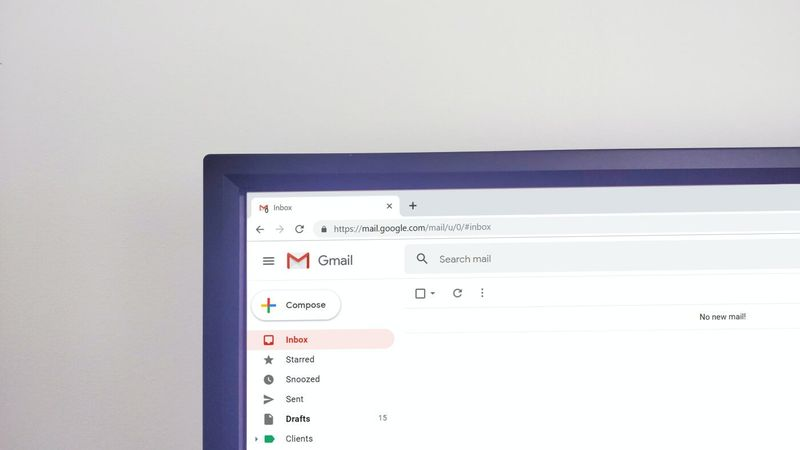How To Write A Follow-Up Email After An Interview

Nothing is more disheartening than having a great interview, only to receive no feedback. It can leave you uncertain; What did you do wrong? Were you too introverted? Should you have prepared a precise transcript about your skill, or been more knowledgeable regarding the goals and values of the company? A follow-up email after no response from employers can create an informative and highly valuable resource, teaching us to present ourselves better, provide one last opportunity to make a lasting impression, and take the stress out of waiting for feedback.
Here’s how to write an email following no response from an interview:
Email The Recruiter Directly
Businesses get hundreds of emails to their employees a day. You need to make your email stand out from the others and the easiest way to do that is send it to the appropriate department or better yet, the recruiter who handled your interview process. If you already have an email chain with either the company or an individual recruiter, reply to that rather than composing a new letter. “It’ll make your email easier to find and have information on your interview schedule at the recipient’s fingertips, linking back to prior discussions. Be aware that for best results, you’ll want to send the email within 48 hours of your interview, while the interaction is still fresh” says Katlynn Sanford, a recruiter at Paper Fellows and OX Essays.
Stand Out With an Informative Subject Line
Besides being sure a recruiter knows who you are, a subject line is a chance to make a positive impression that links back to your exchange. If replying to an established email, it will usually default to something apt, but can be changed if desired. For example, “Re: Interview at Eleven” is concise and descriptive, detailing when you were there at a glance. If you compose a title yourself, be sure to keep it short and simple while including specifics such as the job title, the interview time or if it occurred off-site, the place you met.
Applicant recognition and attention to detail quickly shape a recruiter’s opinion of an individual.
A Stellar Introduction
The tone and content of your email are very important; you need to be friendly but respectful, including details that highlight how interested you were in the interview and the company. The introduction should be formal; if you’re writing to your interviewer, open with a formal greeting and address them by name, while if it’s a recruitment department, mention your interviewer by name and state that you’re following up on an interview. Make sure to detail the date and time, the job title you interviewed for, and any interesting details you discussed.
The Perfect Body
Now you’re introduced, reassert your interest in the position. Explain how passionate you are about what you learned in the interview and learning more as an employee. Express excitement at the prospect of working with them. Then, ask for an update; state any information on the process would be appreciated, and communicate how grateful you are for the opportunity the interview provided.
Finally, offer to send in any extra documents the recruiter may need on request and thank them for their time, signing off with a formal closing statement and your first and last name. “You should try to keep this section short and concise – a couple of paragraphs each, formatted cleanly into two or three lines – while avoiding using overly-expressive punctuation. Exclamation marks seem unprofessional and immediately alter an interviewer’s perception of a candidate” says Deon Ziemann, a business writer at State of writing and Lia Help.
Finishing Touches
Include any additional contact details such as a phone number or alternate email beneath your sign-off. This gives the recruiter instant access to you, should they wish to call. Make sure you check the entire email, including your contact details, a few times for errors. If you don’t have a spell-checker on your computer, there are a number of free resources that will highlight smaller errors online. When you’re sure the email is free of errors and retains a respectfully casual tone, it’s ready to send.
Sending a follow-up email seems daunting, but these steps phrase your inquiry as an extension of your interview, allowing a less strenuous and beneficial rapport with a potential employer all while maintaining a professional, friendly tone.
About the Author:
A marketing writer, Kristen Herman creates content for UK Writings and Paper writing service for college. She also contributes magazine articles to blogs, such as Boomessays, and more.
Related Posts:


Featured Remote Jobs
 Opened 4 days ago Featured Job Remote Job
Opened 4 days ago Featured Job Remote Job Opened 5 days ago Featured Job Remote Job
Opened 5 days ago Featured Job Remote Job Opened 11 days ago Featured Job Remote Job
Opened 11 days ago Featured Job Remote Job Closes in 12 days Featured Job Remote Job
Closes in 12 days Featured Job Remote Job Closes in 12 days Featured Job Remote Job
Closes in 12 days Featured Job Remote Job Closes in 10 days Featured Job Remote Job
Closes in 10 days Featured Job Remote Job Closes in 6 days Featured Job Remote Job
Closes in 6 days Featured Job Remote Job Closes in 5 days Featured Job Remote Job
Closes in 5 days Featured Job Remote Job Closes in 4 days Featured Job Remote Job
Closes in 4 days Featured Job Remote Job
